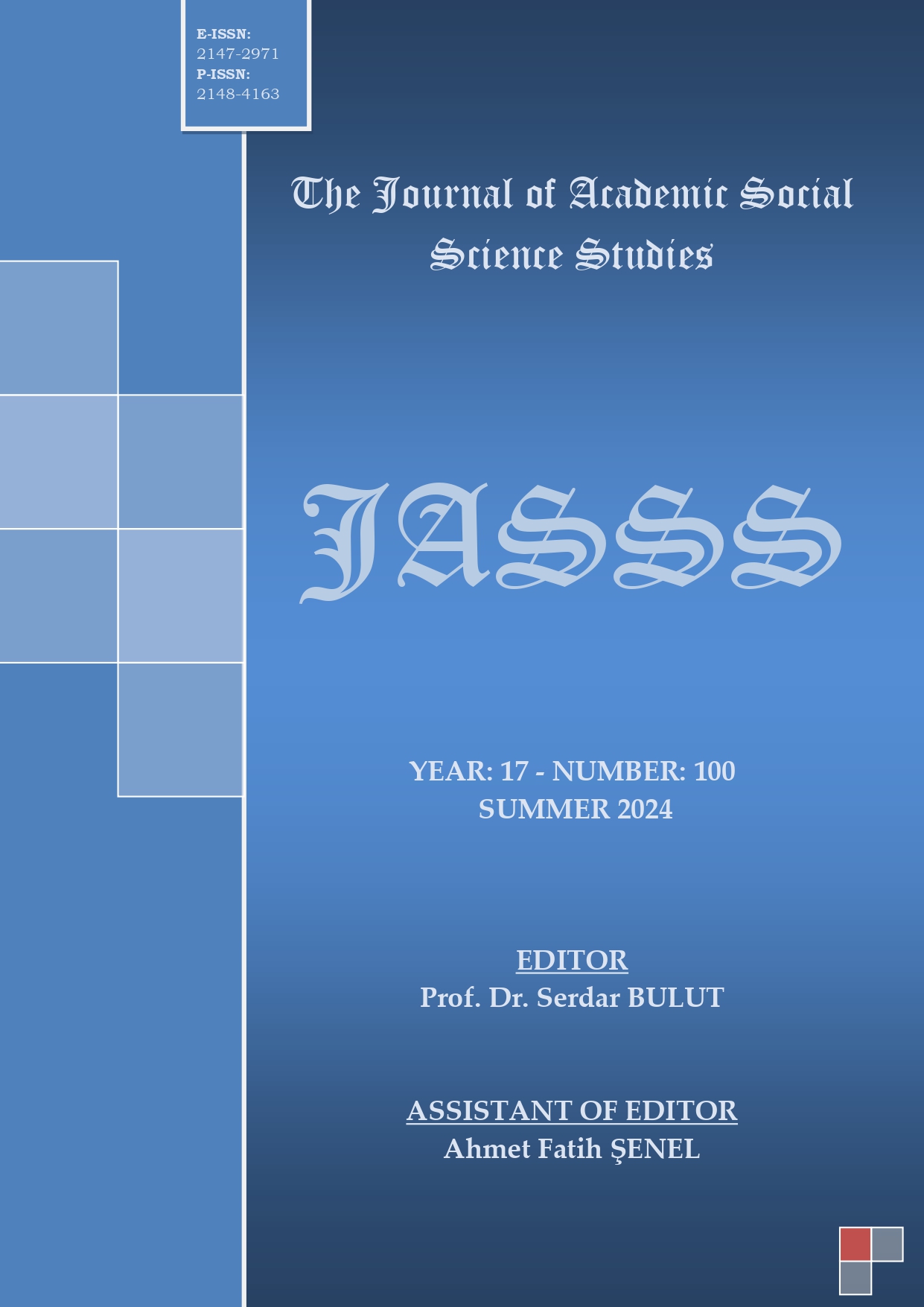“KATI OLAN HER ŞEY BUHARLAŞIYOR: MODERNİTE DENEYİMİ” MARSHALL BERMAN’IN KÜLT ESERİ ÜZERİNE ELEŞTİREL BİR İNCELEME
Author :
Abstract
Bu çalışma, Marshall Berman’ın, “All That Is Solid Melts Into The Air: The Experience Of Modernity” isimli etkili kitabını, 1982’de New York’ta yayınlanmasından yaklaşık 40 yıl sonra yeniden ele almaktadır. Kitabın ismi, 1888’de Karl Marks ve Friedrich Engels tarafından yazılan Komünist Manifesto’dan alınmıştır. Kitap, toplumsal ve ekonomik modernleşmenin, modernizm ile temel çelişkileri üzerine şekillenmiştir. Berman kitabında, “Geriye dönmenin ileriye gitmenin bir yolu olabileceği” fikrinden hareketle, 19. yüzyıl modernizmlerini hatırlamanın, bize 20. yüzyıl modernizmlerini yaratmak için vizyon ve cesaret verebileceğini gösterme çabasındadır. Modernlik, “katı olan her şeyin buharlaşıp gittiği bir dünyanın parçası olmak” şeklinde tanımlanmaktadır. Kitapta, modernizm farklı zaman dilimlerinden ve coğrafyalardan örneklerle, edebiyat, sanat ve mimari üzerinden analiz edilmektedir. Goethe'nin “Faust”u, Baudelaire'in Paris'i, Petersburg ve New York'un modernleşme örnekleriyle Berman, moderniteyi sadece bir tarihsel dönem olarak değil, aynı zamanda bir ruh hali ve yaşam tarzı olarak açıklıyor. Modernizmin bireyleri hem özgürleştiren hem de yabancılaştıran doğasını irdeleyerek, okuyuculara modern dünyanın karmaşıklığının ve paradokslarının birlikteliğini kavramaları için zengin bir bakış açısı sunmaktadır. Berman, manifestoda yer alan ve kitaba ismini veren “Katı olan her şey buharlaşıyor” imgeleminden hareketle, Marks’ın modernliğine de dikkat çekmektedir. Bu çalışma, Berman’ın görüşlerini, özelikle Perry Anderson tarafından yöneltilen eleştirilerle genişleterek açıklamaya çalışmaktadır. Berman’a yönelik eleştiriler, modernliği tanımlamak için kullandığı dönemselleştirme ve Avrupa Merkezlilik vb. konular üzerinden gelmiştir.
Keywords
Abstract
This study revisits Marshall Berman’s influential book “All That Is Solid Melts Into The Air: The Experience Of Modernity”, almost 40 years after its publication in New York in 1982. The title is taken from the Communist Manifesto written by Karl Marx and Friedrich Engels in 1888. The book is centred on the fundamental contradictions of social and economic modernisation with modernism. In his book, Berman endeavours to show that remembering the modernisms of the 19th century can give us the vision and courage to create the modernisms of the 20th century, based on the idea that “going back can be a way of going forward”. Modernity is defined as ‘being part of a world where everything solid has evaporated’. In the book, modernism is analysed through literature, art and architecture with examples from different time periods and geographies. With examples of Goethe's ‘Faust’, Baudelaire's Paris, the modernisation of St. Petersburg and New York, Berman explains modernity not only as a historical period but also as a state of mind and lifestyle. By examining the nature of modernism that both liberates and alienates individuals, Berman offers readers a rich perspective from which to grasp the complexity and paradoxes of the modern world. Berman also draws attention to Marx's modernity by referring to the image of ‘Everything solid is evaporating’ in the manifesto, which gives the book its title. This study attempts to explain Berman's views by expanding them, especially with the criticisms made by Perry Anderson. Criticisms against Berman have come about the periodization and Eurocentrism etc. that he used to define modernity.





